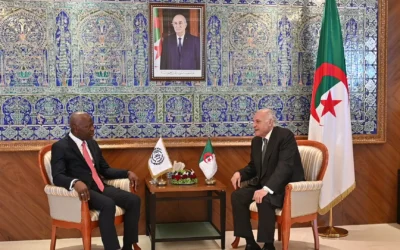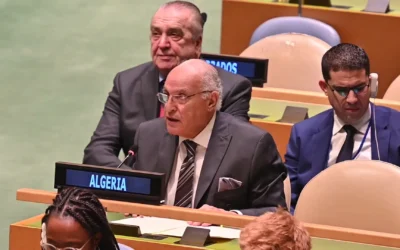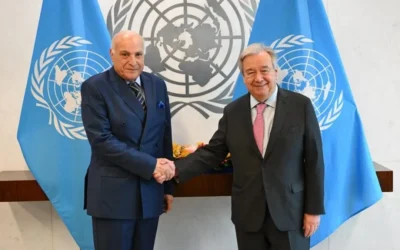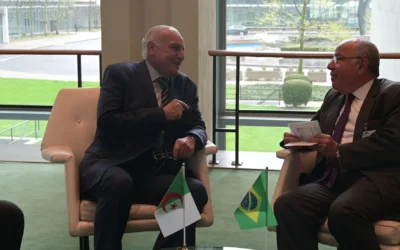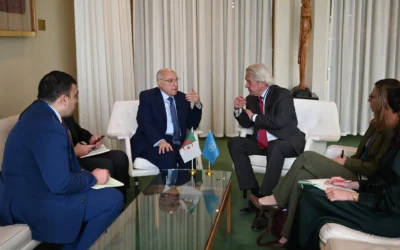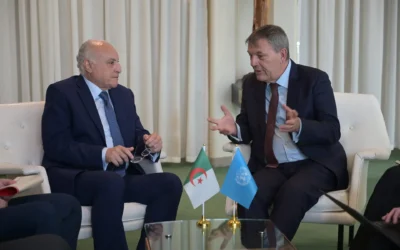Algerian approach on de-radicalization, a successful example

APS : MONDAY 20 NOVEMBER 2017
WASHINGTON- The Algerian experience in de-radicalization will serve as an example for further disengagement policies worldwide, said Carnegie Middle East Center in an article published last Friday,
entitled “A Life After Jihadism.
So far, “there is no ideal template or programme for the demobilization of jihadists … yet, thinking about the Algerian experience is a useful starting point for developing disengagement initiatives elsewhere,” said the Beirut-based centre, established by the Carnegie Endowment for International Peace.
The centre added: “If one lesson needs to be learned from the Algerian experience, it is that a military response is not sufficient on its own. Terrorism is above all a social phenomenon, and therefore a failure to engage with it on a social level may ensure it comes back in some form.”
In Algeria, the authorities “adopted more conciliatory methods since that time, including a truce, reconciliation process, demobilization and rehabilitation programs, as well as investing in development,” said Dalia Ghanem-Yazbeck, the author of the article.
“Today, Algeria, with its combination of a soft and hard approach, provides a successful example of how to neutralize” terrorism, said the centre.
In 1995,” Algeria returned to a pluralistic political process, one allowing for the reintegration of all parties into political life,” giving “the misguided of the nation” a peaceful opening to express their views, as an alternative to violence, explained the analyst.
Between 1995 and 1996 some 2,000 fighters were disarmed and demobilized.
In a more significant manner, the reconciliation efforts continued with the adoption in 1999 of the Civil Harmony law and crowned in 2005 by the Charter for Peace and National Reconciliation adopted by popular referendum, said the analyst.
The measure offers the exemption from prosecution against terrorists who surrenders, except those who had been involved in rape, massacres, or in setting off bombs in public places.
Some 7,000 of the fighters and other small groups laid down their weapons.
“This process helped restore to a certain extent Algerians’ faith and trust in their leaders,” added Dalia Ghanem-Yazbeck.
The Charter helped counter the extremist discourse, giving the former militants, a voice by being encouraged to speak publicly about their experiences in the armed groups and the reasons for their engagement and ultimately for their decision to stop.
The call of the former militants for an end to violence and for reconciliation helped “humanize” the terrorists who had not laid down the weapons and raise awareness about violent radicalization, preventing others from joining the fight.
Financial compensation was also provided by the state to a broad category of people described as “victims of the national tragedy,” including the families of the victims, said the Think Tank.
“The Professional rehabilitation was crucial to the militants’ reintegration into society as it provided them with a sense of belonging and purpose, pride and dignity, as well as a sense of citizenship,” wrote Carnegie.
“The government’s initiatives deprived jihadis of a potential recruitment pool by offering an alternative to jihadism,” concluded the Think Tank.
Categories
Recent Posts
- Meeting of the Ambassador in Sofia with the Mayor of Sofia
- Mr Attaf receives the Director General of the ILO
- Minister Attaf takes part in a discussion session on the implementation of the UN’s ten-year objectives for sustainable energy
- Mr Attaf discusses, in New York, with UN Secretary General
- Bilateral meetings between Mr Attaf and Brazilian, Jordanian counterparts

